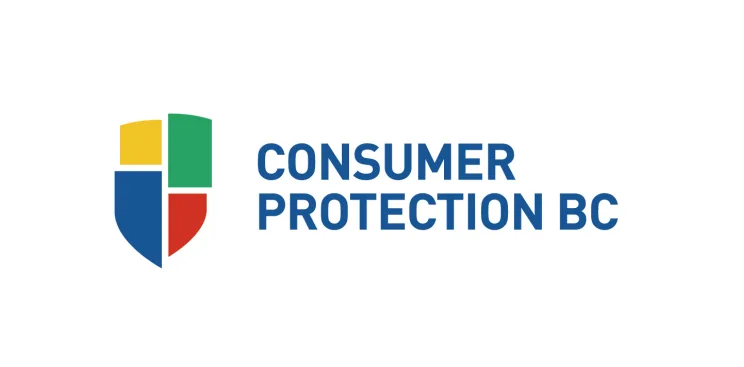
To sign a contract for the transfer of land in BC, you have to use a handwritten signature.
Whether it is a formal, typed document or handwritten on a piece of paper, once a contract is signed, it generally cannot be changed or broken unless both parties agree. You should not sign a contract unless you have read it, understood it, agree with it, and want to be legally bound by it.
What you should know
Under British Columbia law, you have to sign a few types of contracts with a handwritten signature for them to be considered enforceable. These are:
a will
a trust created by a will
a power of attorney
a transfer of land
For any other contract, signing with an electronic signature has the same legal effect as signing with a handwritten signature.
An electronic signature is information in electronic form that a person creates or adopts to sign something. It can take the form of typing your name into a contract or inserting an electronic image of your handwritten signature.
Under BC law, some types of contracts must be witnessed, such as a transfer of land. This type of contract has specific requirements for who can serve as a witness. The witness must be an “officer” as defined under the law, which includes a lawyer, notary public, judge, and some other professional categories.
The witness must be present when the party whose signature is to be witnessed is signing the contract.
You and the other party to a contract don’t have to be together to sign the contract.
Prevent problems
If you are dealing with a person or business you do not know, do background research on them. Here are some of the things you can do:
Google their name.
Check out review sites or their social media pages to see what others are saying about them.
Ask for references.
If you are dealing with a business, check with the Better Business Bureau serving your area for whether they have been reviewed or authorized.
The BC Registrar of Companies can run a search on a company to see if it actually exists, has any outstanding lawsuits filed against it etc.
If you have any doubts, do not sign the contract.
Before you sign a contract, make sure you read it and understand it. Saying later that you did not understand the contract you signed will not usually get you out of the contract.
Understand the promises that are being made
Make sure you understand what each party is promising to do or pay.
Be prepared to live up to all provisions in the contract, regardless of what the other party says. Don’t believe the other party if they say "Oh, don’t worry about that wording, it’s just a formality."
Cross out any words you do not agree with, and have these changes initialled by you and the other party before you sign.
If you are paying a deposit, make sure you understand:
if the amount of money deposited will go toward the final purchase price of the item
what will happen to the deposit if you cancel the contract
Understand any warranties or guarantees
Make sure you understand exactly what the other party is going to do for you, if anything, in terms of offering a warranty or guarantee on a good or service.
A warranty or guarantee is a promise made about the quality of goods or services sold and what the person making the promise will do if there are problems.
The term "guaranteed" when used alone means little or nothing. Guaranteed for what? To last one week? It is important to know and understand the terms of the guarantee or warranty, not just the fact that it is "guaranteed."
Be aware that under the law, a level of quality, performance and durability is implied into every contract. When you buy something from a business, it has to:
be fit for the purpose you bought it for (that is, it has to function for its intended purpose),
be of “merchantable” quality (it has to work and can’t be damaged),
be durable for a reasonable period of time, and
match the description of the goods or services.
These conditions are sometimes referred to as the legal warranty, as they are established by a law called the Sale of Goods Act. This legal warranty applies regardless of whether the seller mentions it. It is in addition to any warranty the seller or manufacturer provide.
Learn more about how warranties and guarantees work.
Understand how to end the contract
Find out if you are able to cancel the contract. If you can cancel, find out how you can do so. Ask about what reasons you would have to give to cancel the contract.
Never sign a contract that contains blank spaces. For example, a contract may say:
“The work to be conducted is detailed as follows: _________.”
Fill all blank spaces in so that details cannot be added later by another party.
Be alert for anything in the contract that allows the other party to substitute items or change the contract after you have signed it. An example of a sentence in the contract that could allow this might read:
“The seller reserves the right to make substitutions.”
This type of language means you may not get the item that you agreed in the contract to buy. Discuss this with the other party before agreeing to sign the contract.
Make sure any verbal agreements or claims made by you or the other party are written into the contract. If the other party has made any statements that were important to your decision to enter the contract, insist that they be written into the contract and then initialled by both you and the other party.
For example, let’s say that you are buying a car and the seller agreed that the sale will only go through if there is a mechanical inspection that you approve. Make sure this language is written into the contract and initialled by both you and the other party.
Never let yourself be pressured into signing. Take your time.
Consider seeking legal advice
Get legal advice if you are not sure whether the contract properly reflects your agreement or if you have any concerns about the agreement.
When you understand and are in agreement with the content of the contract, sign and date it.
Make sure you get a copy of the contract for your reference. Make sure the other party (or parties) has one as well.
Common questions
Possibly yes. Where parties are discussing an agreement in conversations and emails, their discussions can create an enforceable contract if:
both parties agreed on all the essential terms required to form a binding agreement,
a reasonable bystander would conclude the parties intended to be bound, and
signing a formal contract was just a formality.
If these factors are all present, it doesn’t matter if the parties never sign a written agreement. They can be bound by the promises they made in the preliminary communications.
Who can help

Consumer Protection BC
Assistance relating to certain types of consumer problems and contracts in BC.


